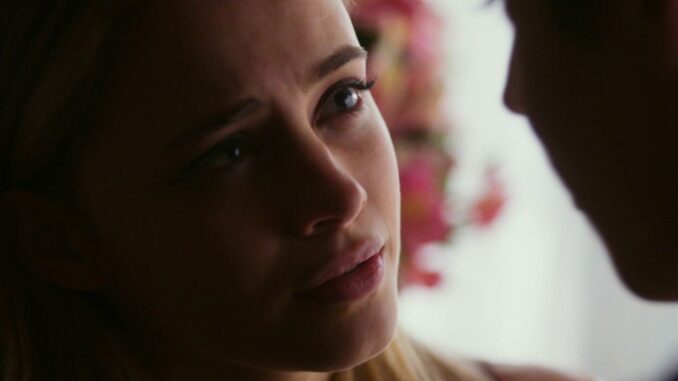
The Unfurling of a Fisted Heart: "After Everything" and Hardin Scott's Harrowing Journey to Self
For years, the "After" saga captivated audiences with its whirlwind of tumultuous passion, codependency, and the irresistible, yet often toxic, pull between Tessa Young and Hardin Scott. Their story was a rollercoaster of highs and devastating lows, defined by Hardin’s volatile temper, his self-destructive tendencies, and Tessa’s unwavering, if sometimes enabling, devotion. But as "After Everything" arrived, a surprising consensus emerged from the reviews: this final chapter wasn't just about their relationship's ultimate fate. It was, instead, a stark, unflinching, and ultimately redemptive spotlight on Hardin Scott’s arduous, solitary emotional journey, charting his agonizing path from self-loathing to a fragile, hard-won peace.
The film opens with Hardin at his nadir. The passionate, angry young man we knew has crumbled into a shell of himself, haunted by his past actions and crippled by writer’s block. Reviews universally highlighted this initial portrayal as a necessary dive into the depths of his despair. Gone is the arrogant swagger; in its place is a hollowed-out expression, a restless energy that can’t be quieted, and a desperate search for an escape from the echoes of his own toxicity. He is not merely sad; he is a man drowning in a self-made maelstrom of guilt and regret. The critical consensus pointed to this brutal honesty as the film's first strength: it dared to strip away the romanticized veneer of his "bad boy" persona and expose the raw, bleeding wound beneath. His inability to write the sequel to his bestselling novel becomes a potent metaphor for his inability to write the next chapter of his own life; he is stuck in a loop of his past mistakes, unable to move forward until he confronts the very source of his anguish.
The emotional core of "After Everything," as many reviews underscored, lies in Hardin's forced introspection and his reluctant embrace of genuine healing. This isn't a quick fix or a magical transformation. Instead, the film meticulously illustrates the painful, messy work of self-discovery. We witness Hardin grappling with his inner demons not through grand gestures, but through quiet, agonizing moments of vulnerability. His hesitant attempts at therapy, his painful revisiting of the places and people he hurt, and his slow, agonizing realization that he is the common denominator in his suffering—these are the pivotal moments that critics praised for their authenticity. This wasn’t just about making amends to Tessa; it was about making amends to himself. The reviews often lauded the film for depicting a rare male journey of self-reflection in a genre often dominated by female protagonists and their emotional arcs. Hardin's pilgrimage, almost an apology tour across the globe, is less about seeking forgiveness from others and more about seeking absolution for himself.
Crucially, the film highlights Hardin's emotional journey by making it independent of Tessa. For so long, her presence was his barometer, his anchor, and often, his justification for both good and bad behavior. Reviewers noted that "After Everything" bravely dismantles this codependency. Hardin's growth isn't predicated on winning Tessa back; it's about him finding a way to exist, to heal, and to thrive without needing her to complete him. His ability to finally write, to channel his pain into art, and to form healthy, respectful friendships (even with those he once loathed) signifies a profound shift. It’s the journey of a man who finally understands that love isn't about possession or obsession, but about respect, space, and individual wholeness. The reviews often celebrated this narrative choice as the most mature and meaningful aspect of the film, finally allowing Hardin to step out of Tessa's shadow and become his own person.
Ultimately, "After Everything" received praise for daring to deviate from the expected romantic crescendo and, instead, charting a more profound, albeit less glamorous, path for its male lead. Hardin Scott’s emotional journey, highlighted in countless reviews, became the unexpected heart of the film. It transformed him from a caricature of an angry young man into a relatable figure battling his inner demons. His story in this final installment is a testament to the idea that true growth often happens in isolation, through uncomfortable truths, and through the painful but necessary process of unfurling a fisted heart, one raw emotion at a time. It's a journey not of finding love, but of finally finding himself.
